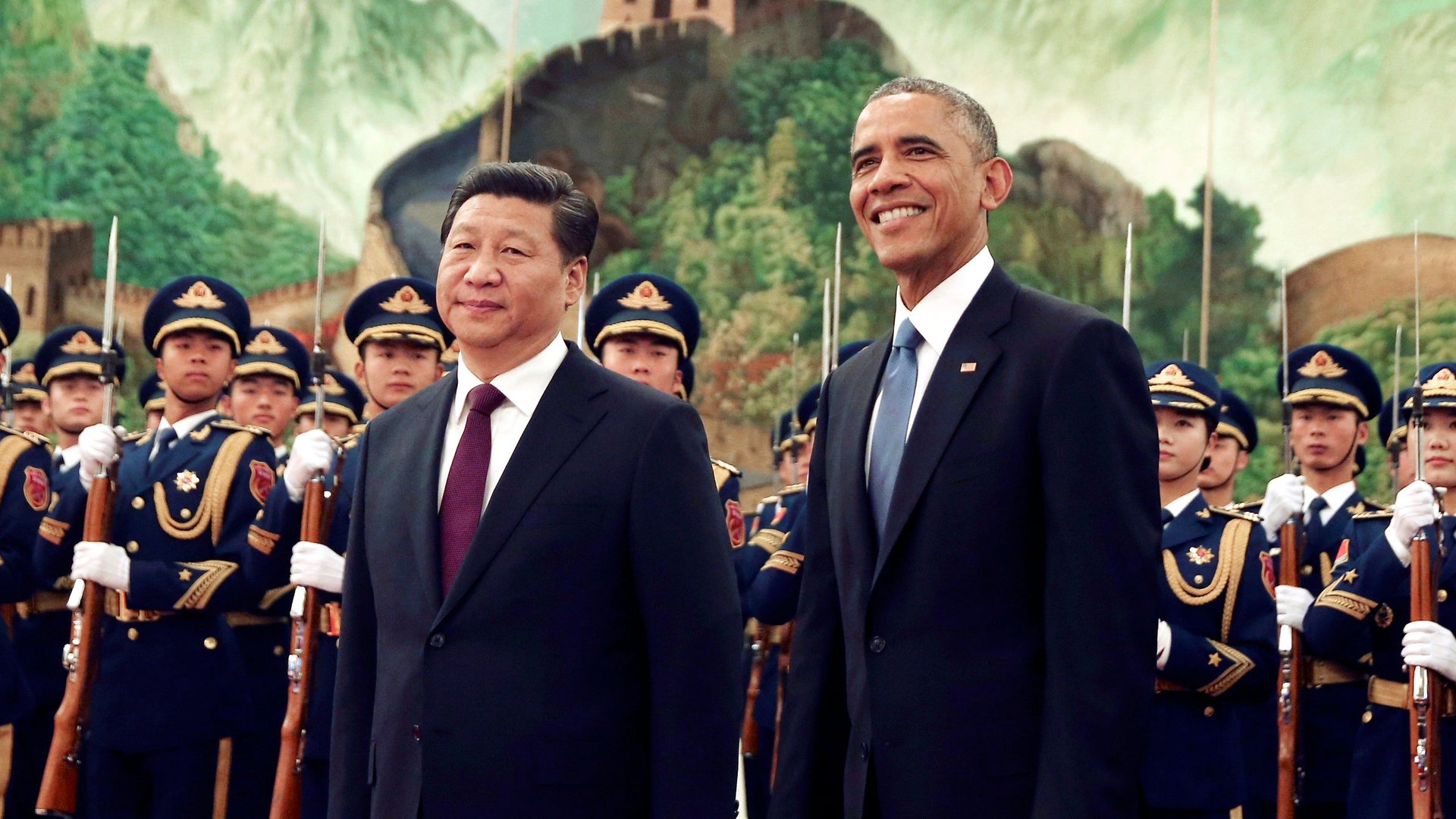Can Xi Jinping achieve anything concrete on his US travels?
Chinese president Xi Jinping arrival in the US comes at an inconvenient moment for relations between the two countries.


Chinese president Xi Jinping arrival in the US comes at an inconvenient moment for relations between the two countries.
It isn’t just the recent arrest of a US citizen the Chinese government alleges is a spy. There’s also the fact that China has been throwing its weight around with US tech firms despite the US government’s complaints about China’s digital attacks for trade secrets. And finally, there’s the upheaval in China’s financial markets and its implications for American investors—who have been otherwise inclined to look the other way about the country’s security threats and human rights violations.
So what good could a state visit from the embattled Chinese president, who arrives in the US today (Sept. 22), accomplish?
Big multinational companies that build the economic links between the two countries believe that there’s time for progress on a business investment treaty (BIT) that would open up new sectors of China’s economy to American investment. Ninety-four CEOS signed a letter to Obama and Xi last week, including the heads of Goldman Sachs, IBM, JP Morgan, Facebook, Pfizer and General Electric. Currently, Americans cannot directly own banks, telecommunications firms, education companies or internet publishing firms, among 39 restricted sectors.
A BIT would relax those restrictions, allowing more US firms to become players in the country’s economy. The financial industry in particular would value market liberalization—one official at an investment bank, who declined to be named due to his participation in talks with US officials, called the move a “game changer,” especially compared to the Trans-Pacific Partnership free trade deal, which would largely codify existing relationships, and the Trans-Atlantic Trade and Investment Partnership, which is languishing.
“We all see China as the great new frontier,” the official said. “All the foreign firms in the [Chinese] financial market have access to 1% of the market. We envision with a successful BIT, foreign firms could maybe 10%…in the US, we’re just swapping customers. This a new market.”
The agreement would come at little cost to the US. Though Chinese investors already have access to most of the US market, fear of losing it is one incentive bringing them to the table. Others include the opportunity to use a deal to pass reforms to which Xi and the party’s leadership have long paid lip-service.
China’s volatile stock market has given skeptics of reform ammunition to push back against further opening its economy, but reform advocates say that the contradictions of China’s state capitalism—investors frantically reacting to ad hoc government responses rather than market forces—can only be remedied by reducing state involvement. And if the problem the country faces is hot money leaving the country, becoming more attractive to direct foreign investment might not be a bad move.
There is a precedent for such an agreement late in a US president’s term: China’s full accession to the WTO—and the beginning of its massive impact on world trade flows—came at the tail end of president Bill Clinton’s term of office. And while China is no doubt set to be a bogeyman on the US campaign trail, the Obama administration’s success in earning trade negotiating powers from Congress this summer gives those interested confidence.
Even if little is accomplished on the BIT while Xi is in Washington, the topic to take up plenty of airtime. And anyway, there’s little else positive to talk about.